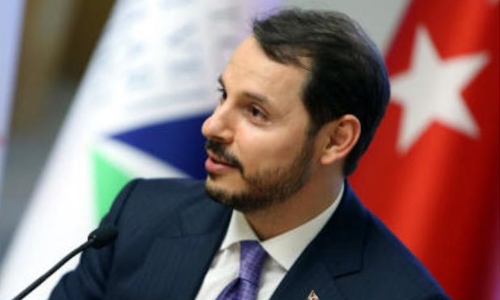Turkish inflation falls to 20.3pc in Dec
Turkish inflation dropped for the second month in a row, to an annual rate of 20.3 per cent after hitting a 15-year high in October, official statistics showed yesterday. Thousands of Turks protested in Istanbul last month against crippling inflation as the economy struggled following a currency crisis in August. The government launched an “all-out fight against inflation” as the lira fell by more than 28 percent in value against the dollar in 2018.
In October, consumer prices were 25.24pc higher than in the same month a year earlier, the highest level since 2003. That figure eased to 21.62pc in November and the level in December was below a Bloomberg forecast of 20.5 percent though still far above the central bank target of five percent. On a monthly basis, consumer prices eased in December by 0.4pc, the Turkish statistics office (TUIK) said.
But compared with a year earlier, furnishing and household goods were 31.36pc more expensive, while food and non-alcoholic drinks were up by 25.11pc, TUIK data showed. The lira stood at 5.44 against the US dollar after the figures were released, gaining nearly 2.8pc in value on the day. In early January 2018, it took around 3.75 lira to buy one dollar.
Turkish Finance Minister Berat Albayrak has said the fight against inflation will continue through the first three months of 2019, and include cuts on a special consumption tax and value added tax. The Union of Chambers and Commodity Exchanges of Turkey (TOBB) head Rifat Hisarciklioglu urged the private and public sectors to cooperate in the battle against rising prices. In September, the central bank raised its main interest rate, the the one-week repo rate, by 6.25pct points to 24pc.
Related Posts

